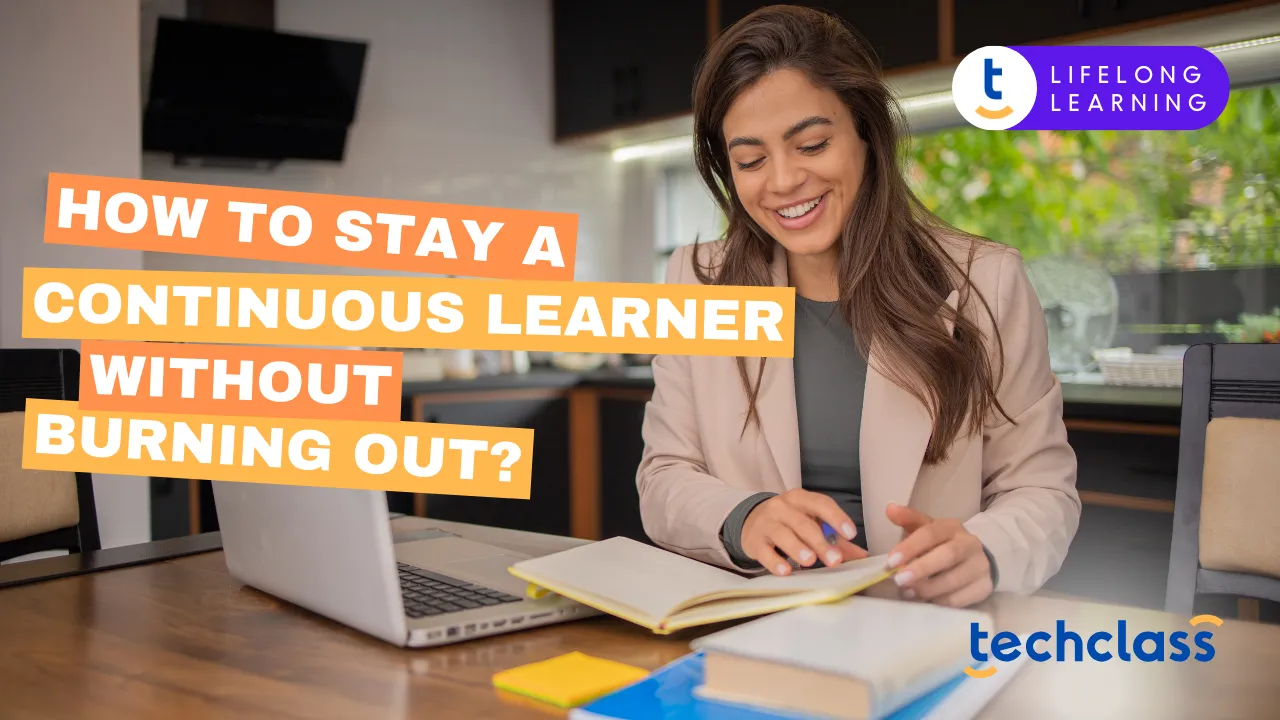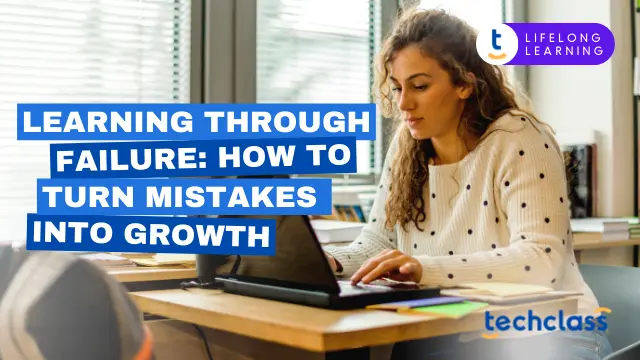
In our ever-evolving world, learning doesn’t stop when formal education ends. Continuous learning to change careers, explore personal interests, or adapt to a changing world is both a powerful asset and a personal commitment. But there’s a catch: without a strategy, the very process that should energize you can lead to fatigue, frustration, and burnout.
So how do you stay a continuous learner without burning out? Here are practical strategies designed to help you maintain motivation, preserve energy, and grow over time.
It is important to embrace the reality of your limitations, time, energy, and life responsibilities. Setting massive, vague goals like “become fluent in a language” or “master coding” can feel inspiring at first but quickly become overwhelming.
Instead, break these larger goals into smaller, achievable milestones. For example, commit to learning 10 new vocabulary words per week or completing one module of a course each weekend. These bite-sized targets make learning feel manageable and build a momentum of success. Each small win acts as a psychological reward, reinforcing your learning behavior and preventing the feeling of being perpetually behind.
Tip: Use tools like SMART goals (Specific, Measurable, Achievable, Relevant, Time-bound) to structure your plans. Be honest about how much you can realistically do weekly.
Not all study methods are equally effective, or equally engaging. Passive learning activities, such as watching long video lectures or rereading notes, often feel like progress but lead to minimal retention. More dangerously, they can make learning feel dull, increasing the risk of mental fatigue.
Active learning, on the other hand, keeps your brain engaged. This includes methods like self-quizzing, teaching what you've learned to someone else, doing short practical exercises, or using the Feynman Technique (explaining a concept in your own words as if teaching a child). These methods promote deeper understanding and help you learn more in less time, reducing the need for long, draining sessions.
Tip: Each time you consume information, follow it with a question: “Can I explain this to someone else?” If not, revisit and reframe it.
Many people fall into the trap of “all-or-nothing” learning. They binge-learn over the weekend or late at night and then stop completely when life gets in the way. This inconsistency can be exhausting and discouraging.
Instead, aim for a steady rhythm, such as studying for 30 to 60 minutes on weekdays, leaving weekends free for review or reflection. Just like physical exercise, learning benefits from consistent practice with built-in rest. When you spread out your learning and schedule regular breaks, you retain more while avoiding cognitive overload.
Tip: Treat learning like an appointment, block time on your calendar and protect it from distractions.
When it comes to learning efficiency, your environment matters more than you think. Distractions like phone notifications, background TV, or even clutter can break your concentration and prolong learning sessions unnecessarily.
Create a dedicated, quiet space where you feel comfortable but focused. That could be a home office corner, a library desk, or a local café with no Wi-Fi. Remove digital temptations by turning off your phone or using focus tools to block distracting apps and websites.
Tip: Choose break activities that are restful but not overly stimulating, like stretching or walking, to avoid losing momentum.
People often underestimate the importance of rest. They assume pushing harder is the answer to falling behind. But without downtime, your brain can’t process new information effectively. Just like muscles after a workout, your mind needs recovery to grow stronger.
Short, regular breaks during study sessions can help reset your focus. More importantly, prioritize self-care across your week: sleep well, eat nutritiously, hydrate, and stay active. These habits don’t just support your health, they supercharge your brain’s ability to learn.
Tip: Follow the Pomodoro Technique, study for 25 minutes, break for 5. After four cycles, take a longer 15-30 minute break.
Learning in isolation can be lonely and demotivating. By joining a learning community, whether online, in-person, or through social media, you gain accountability, encouragement, and exposure to new perspectives.
Discussions with others help clarify your thoughts and introduce fresh insights. You also get to see how others approach similar challenges, which can help you overcome your own hurdles. Whether through online forums, peer learning groups, or book clubs, community can bring joy to your learning journey.
One of the best ways to stay grounded is to reflect regularly on what you're learning and why. Without reflection, learning can start to feel like a task rather than a purposeful pursuit.
At the end of each week or module, take time to journal: What did I learn? What challenged me? What helped me succeed? This reinforces your progress and helps you adjust your approach if something isn’t working. It also reconnects you with your motivation and personal growth goals.
Tip: Use a simple template with prompts like “This week I learned…” or “One thing I’m proud of is…”
Life happens, work gets hectic, kids get sick, motivation dips. Instead of seeing interruptions as failures, see them as opportunities to adapt. Flexibility is the hallmark of sustainable lifelong learning.
You might need to shift from evening learning to mornings, or pause for a week to focus on other priorities. That’s okay. Being kind to yourself during these phases helps you avoid guilt and burnout, and makes it more likely you’ll return to learning with enthusiasm.
Tip: If you feel behind, don’t catch up all at once. Reassess your goals and start fresh.
Continuous learning isn’t about speed, perfection, or comparison. It’s about making space in your life to explore, grow, and adapt. The most successful lifelong learners are not those who learn the most in the shortest time, but those who build learning into their lives in a way that’s sustainable and meaningful.
By applying these strategies, setting realistic goals, engaging actively, managing your time and energy, and staying connected, you can nurture a continuous habit of learning that enriches your life without draining your spirit.
Let learning be your companion, not your burden.
While personal strategies are essential for avoiding burnout, maintaining a consistent growth mindset across an entire organization requires a supportive infrastructure. The transition from individual effort to a collective culture of learning is where many teams face friction, often struggling with engagement and fragmented resources.
TechClass simplifies this transition by providing a platform designed for engagement and balance. Through structured Learning Paths and gamification, learners can visualize their progress and celebrate small wins, which directly helps prevent the fatigue of vague, open-ended goals. By integrating social learning features and 24/7 support from an AI Tutor, TechClass ensures that every employee has the community and assistance they need to stay motivated, turning lifelong learning from a daunting task into a manageable, rewarding habit.


